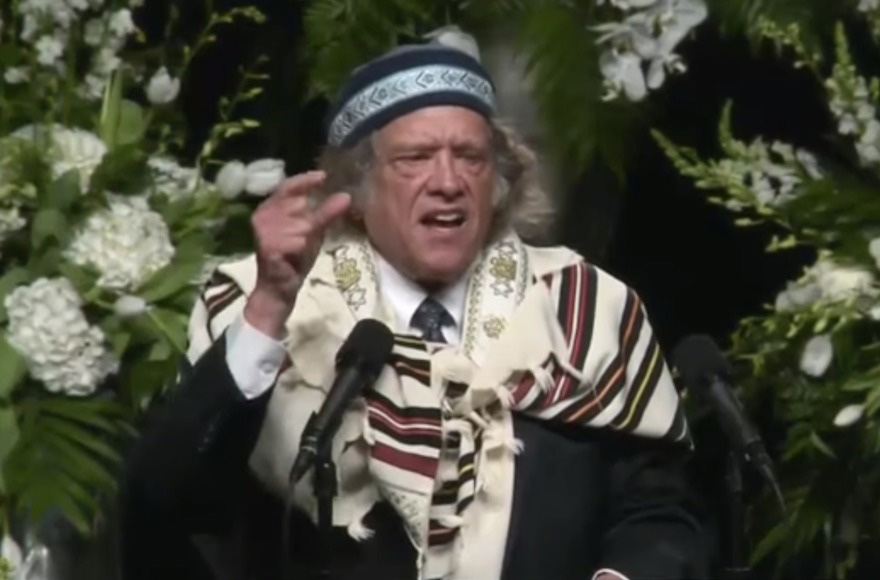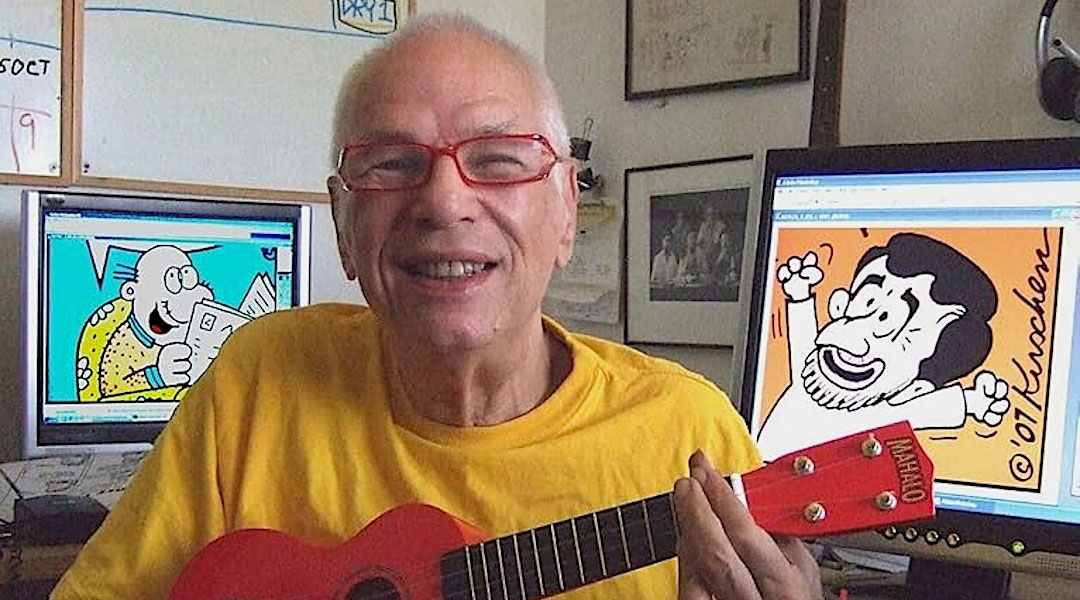Courtesy of JTA. Photo credit: Screenshot from YouTube
Rabbi Michael Lerner speaking at Muhammad Ali’s funeral, June 10, 2016
(JTA) — When Michael Lerner and his then-wife Nan Fink launched Tikkun magazine in 1986, it was a shot across the bow of a Jewish establishment that he said had lost touch with its prophetic roots and was too unwilling to push Israel to seek peace with the Palestinians.
The mid-’80s was “a time when the liberal voices were being increasingly marginalized in the Jewish world,” Lerner told J. The Jewish News of Northern California earlier this year. “And there was no intellectually serious magazine at the time that could provide such a voice.”
Tikkun would go on to publish articles by writers who supported a two-state solution to the Israeli-Palestinian conflict while promoting a liberal agenda that included workers’ rights, feminism and nonviolence. The magazine, which took its name from a Hebrew term meaning “repairing the world,” helped popularize the term as a synonym for social action.
It would also catch the attention of First Lady Hillary Clinton, who in a 1993 speech at the University of Texas referred to what Lerner had begun calling the “politics of meaning” to describe his ideas for instilling psychological, ethical and spiritual considerations in public policy-making.
Clinton’s speech marked the high point of Tikkun’s influence, but it remained a home of Jewish liberal thought for another 30 years, until announcing earlier this year that it would be publishing its last issue.
Lerner died Wednesday at his home in Northern California. He was 81.
In 2011, Lerner’s Berkeley home was repeatedly vandalized after he presented an award in ethics to South African Justice Richard Goldstone, author of a United Nations report on the recent Gaza war that said Israel had committed acts approaching war crimes.
In addition to the magazine, Lerner — who received private rabbinical ordination in 1995 — founded the Network of Spiritual Progressives, which offered classes through Beyt Tikkun: A Synagogue Without Walls, a Renewal synagogue that Lerner founded in 1996.
Lerner was born on Feb. 11, 1943, and grew up in the heavily Jewish Weequahic section of Newark, New Jersey, that also produced the novelist Philip Roth. He attended college at the University of California, Berkeley, where he became a leader of the Free Speech and anti-Vietnam War movements then roiling the campus.
In 1970, Lerner and others were arrested and charged with inciting a riot during a protest of the trial of the Chicago 7, a group of war protesters who had been charged with disrupting the 1968 Democratic convention in Chicago. Lerner served several months in jail before the federal government dropped the main charges relating to the riot.
He later taught philosophy at several colleges, including San Francisco State University, the University of Washington, Trinity College and Sonoma State University.
In 1976 Lerner founded the Institute for Labor and Mental Health. He had been serving as dean of the graduate school of psychology at New College of California (now defunct) before launching Tikkun with Fink.
Lerner was the author of numerous books, including “Jewish Renewal: A Path to Healing and Transformation” (1994) and “The Left Hand of God: Taking Back Our Country from the Religious Right” (2006). In 2016, he spoke at the funeral of boxing great Muhammed Ali, whom he had gotten to know during the movement to end the Vietnam War.
In addition to Fink and Zavis, Lerner was married to Debora Kohn from 1998 through 2014. His survivors include one son and two grandchildren.
Lerner’s vision for the world, in particular when it comes to Israel, has not prevailed. Yet in the wake of the 1995 assassination of Israeli Prime Minister Yitzhak Rabin and the demise of the Oslo peace accords he had championed, Lerner remained hopeful.
“The only way to speak about this conflict is to speak in a compassionate tone to both peoples,” he told the New York Jewish Week in 2015. “You have to speak with compassion to everyone involved in this.”
(Andrew Esensten of J. contributed reporting to this story.)





